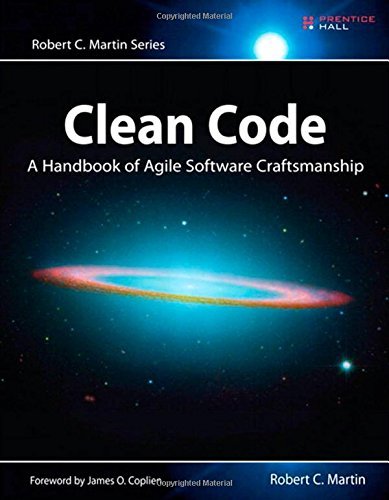Description
Clean Code
 Key Features:
Key Features:
-
Focus on Code Quality:
-
Emphasizes writing code that is clean, readable, and maintainable.
-
Teaches principles, patterns, and practices for writing software that stands the test of time.
-
-
Practical Guidelines:
-
Provides real-world examples and practical advice on how to clean up messy code.
-
Covers specific techniques for improving variable names, function organization, code formatting, and error handling.
-
-
Object-Oriented Design Principles:
-
Discusses SOLID principles, which are key for creating scalable and modular software.
-
Explores the importance of keeping classes and functions small, adhering to the single responsibility principle, and other design principles.
-
-
Refactoring and Continuous Improvement:
-
Demonstrates how to refactor code incrementally without breaking it, keeping it functional and readable at every step.
-
Explains test-driven development (TDD) and unit testing as essential components of clean code.
-
-
Best Practices for Writing Readable Code:
-
Advocates for writing code that speaks for itself, requiring minimal comments and documentation.
-
Discusses the importance of clarity in variable and method names, code structure, and reducing complexity.
-
-
Agile Development Context:
-
Provides insight into how clean code fits within the agile development process.
-
Talks about the role of clean code in iterative development, collaboration, and maintaining codebases over time.
-
-
Code Smells and Anti-Patterns:
-
Introduces the concept of “code smells” – signs that your code may need refactoring.
-
Describes common software development anti-patterns and how to avoid them.
-



Reviews
There are no reviews yet.